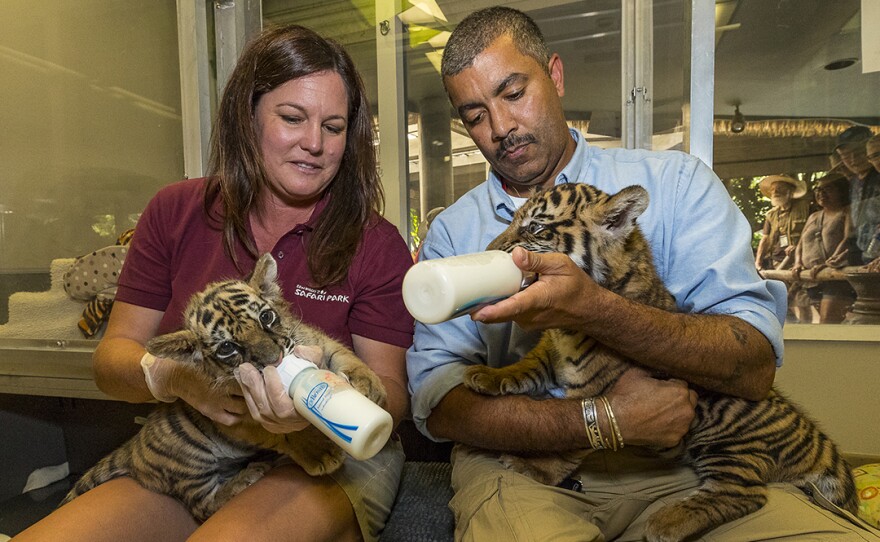A Sumatran tiger cub at the National Zoo in Washington, D.C., was flown to San Diego Monday to join a young Bengal tiger discovered during an apparent smuggling attempt from Mexico.
The 9-week-old male has been fed by humans since the beginning of last month because its mother either was not producing enough milk or had stopped milk production altogether.
The mother, named Damai, began displaying aggressive behavior toward the cub when he tried to nurse, National Zoo officials said. They ended up having to separate the two, and while the cub indicated that he wanted to see the mother, she did not reciprocate.
Craig Saffoe, curator of great cats at the National Zoo, said his team had mixed emotions about sending the cub west.
"As his caretakers, we've done everything in our power to help him survive, thrive and socialize with his mother so that he can grow up to be a healthy tiger," Saffoe said.
"Now that Damai is no longer displaying the maternal behaviors we once saw, our best option is to pair him with the cub at San Diego Zoo," he said. "Having another tiger that is about his age to interact with will be tremendously beneficial to the both of them. They'll be able to play, wrestle and learn how to be tigers together, which is instrumental to his long-term social development."
Saffroe told the Washington Post that it was "a one-in-a-million shot" that the cubs were available to be paired up.
RELATED: Tiger Cub Intercepted At Otay Border Is Healthy

The Bengal tiger was discovered last month at the Otay Mesa Port of Entry, and an 18-year-old Perris man was arrested. The cub, estimated to be about 2 months old, wound up at the San Diego Zoo Safari Park.
"We are beyond thrilled to welcome this tiger cub to the Safari Park," Andy Blue, associate curator of mammals at the park said about the new arrival.
"His keepers reported he did extremely well during the flight — slept most of the way," Blue said. "Our priority now is to ensure he continues to thrive and acclimates well to his new surroundings."
Sumatran tigers are listed as critically endangered by the International Union for Conservation of Nature. It is estimated that between 300 and 400 exist in the wild.
The IUCN lists the Bengal tiger as endangered, with roughly 1,700 in the wild.





